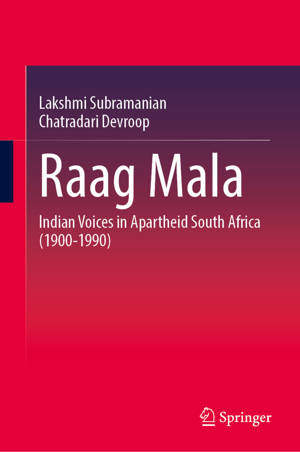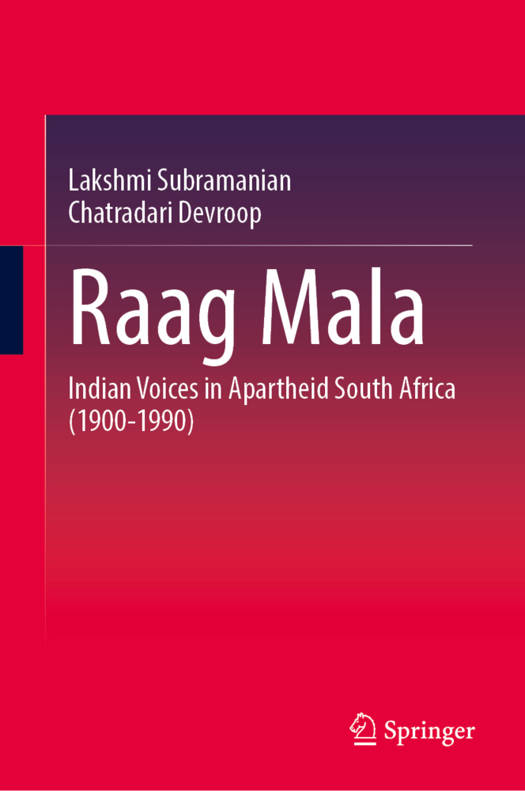
- Retrait gratuit dans votre magasin Club
- 7.000.000 titres dans notre catalogue
- Payer en toute sécurité
- Toujours un magasin près de chez vous
- Retrait gratuit dans votre magasin Club
- 7.000.0000 titres dans notre catalogue
- Payer en toute sécurité
- Toujours un magasin près de chez vous
Raag Mala
Indian Voices in Apartheid South Africa (1900-1990)
Lakshmi Subramanian, Chatradari DevroopDescription
This book delves into the intricate relationship between music and identity among Indian communities in South Africa, particularly during and after apartheid. It provides an overview of existing research on music and Indian diasporic groups, highlighting the unique challenges faced by Indian South Africans in accessing and preserving their musical traditions. It explores the historical soundscapes of South Africa, detailing how restrictive conditions under apartheid influenced social interactions and music-making. The narrative examines how Indians used music as a form of political resistance, developing a distinct Indian South African sound despite severe limitations. It also investigates the evolution of popular genres like qawwali, filmi, jazz, and dance music, shaped by limited access to formal training and the overuse of technology. The book addresses the gender dynamics within the music industry, focusing on the struggles of women artists. Additionally, it discusses the role of technology in music learning and its impact on aesthetic expressions. Through interviews with musicians, the book provides a vivid account of how Indian South Africans used music to assert their identity and resist segregation. It offers valuable insights into the cross-cultural interactions and the complex ways minority groups crafted their identity in the context of apartheid politics. It is a significant resource for academicians, and music lovers interested in the culture of the Indian diaspora and the history of Indian South Africans.
Spécifications
Parties prenantes
- Auteur(s) :
- Editeur:
Contenu
- Nombre de pages :
- 200
- Langue:
- Anglais
Caractéristiques
- EAN:
- 9789819514298
- Date de parution :
- 10-01-26
- Format:
- Livre relié
- Dimensions :
- 155 mm x 235 mm

Les avis
Nous publions uniquement les avis qui respectent les conditions requises. Consultez nos conditions pour les avis.






